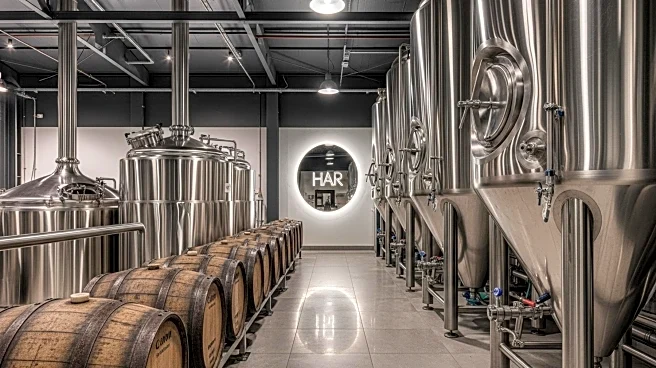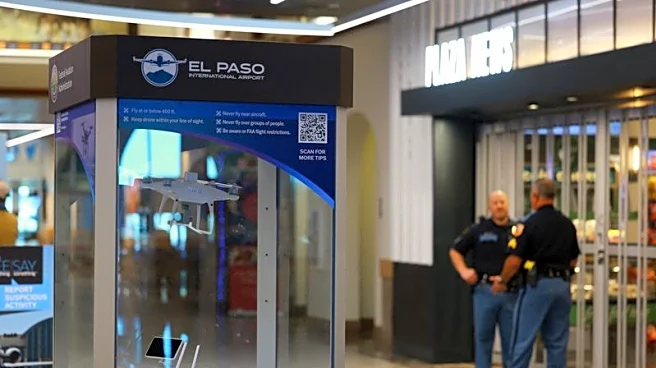What's Happening?
BrewDog, a prominent craft beer company founded in Scotland in 2007, is experiencing a significant downturn in sales and cultural influence. Once celebrated for its rebellious ethos, BrewDog's sales have stagnated, with financial results for 2024 showing a mere 1% increase to £357 million. The company has faced criticism for its corporate behavior, including a controversial private equity investment in 2017 and a toxic workplace culture highlighted by former employees. BrewDog's flagship product, Punk IPA, has been removed from 2,000 pubs, and the company plans to close 10 of its own UK bars. Despite new distribution deals, BrewDog's image as a countercultural icon has been questioned, with observers noting a shift from its original punk identity.
Why It's Important?
The decline of BrewDog is significant for the craft beer industry, which has seen BrewDog as a leader in innovation and marketing. The company's challenges reflect broader issues in the industry, such as the impact of economic conditions on consumer spending and changing preferences among younger generations. BrewDog's struggles also highlight the potential pitfalls of rapid expansion and reliance on private equity, which can dilute a brand's original ethos. The situation serves as a cautionary tale for other craft breweries navigating growth and maintaining authenticity in a competitive market.
What's Next?
BrewDog's future will likely involve strategic adjustments to regain its market position and cultural relevance. The company may focus on reducing costs by closing loss-making bars and leveraging new distribution deals to offset sales losses. BrewDog's leadership will need to address internal cultural issues and restore confidence among its 'equity punks' shareholders. The potential for a stock market flotation remains uncertain, with valuations possibly impacted by recent financial performance. Stakeholders will be watching closely to see how BrewDog navigates these challenges and whether it can reclaim its status as a craft beer pioneer.
Beyond the Headlines
BrewDog's situation raises questions about the sustainability of the craft beer movement and the balance between growth and maintaining a brand's core identity. The company's journey from a rebellious startup to a corporate entity reflects broader cultural shifts in the industry. BrewDog's experience may influence other breweries to reconsider their growth strategies and the importance of preserving their founding principles. The ethical implications of BrewDog's corporate behavior and its impact on employee relations also warrant further examination.










